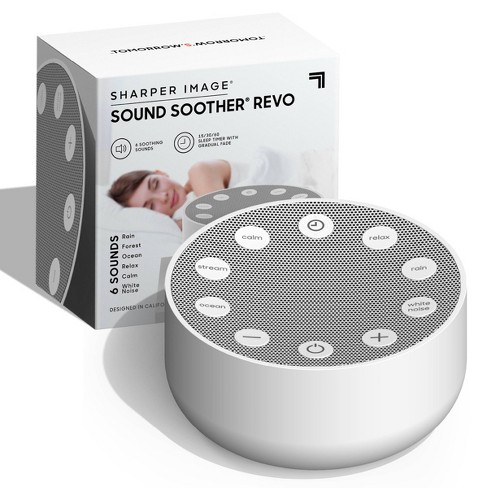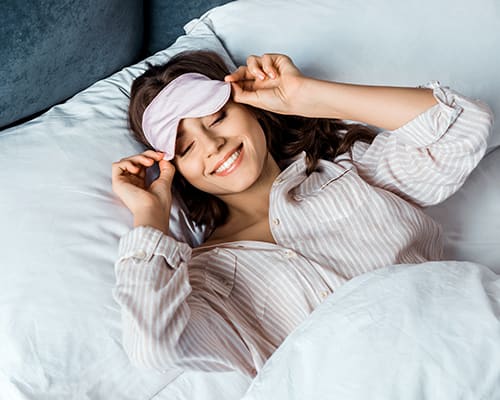Efficient Therapy Solutions for Managing Sleep Disorders and Enhancing Relaxed Sleep
In the realm of healthcare, the management of rest conditions and the pursuit for restful rest are crucial elements of total well-being. As we navigate the elaborate landscape of rest conditions and look for to improve our sleep experience, a much deeper understanding of these treatment remedies may hold the key to opening a much more relaxing and meeting restorative journey.
Cognitive Behavioral Treatment for Sleeplessness (CBT-I)
Cognitive Behavioral Therapy for Sleeping Disorders (CBT-I) is an organized, evidence-based therapy strategy that focuses on dealing with the underlying variables adding to sleep disturbances. This type of therapy aims to change behaviors and ideas that exacerbate sleeplessness, ultimately advertising healthy rest patterns. CBT-I normally entails a number of vital parts, including cognitive therapy, rest restriction, stimulus control, and rest health education.
Cognitive treatment assists people identify and change unfavorable idea patterns and beliefs concerning rest that might be preventing their ability to fall or stay asleep. Sleep restriction involves restricting the quantity of time spent in bed to match the person's real sleep period, therefore raising rest effectiveness (sleep therapy). Stimulus control techniques assist establish a solid organization between the bed and rest by urging individuals to go to bed just when sleepy and to prevent taking part in promoting activities in bed
Furthermore, sleep health education and learning concentrates on developing healthy and balanced rest practices, such as maintaining a regular sleep schedule, creating a relaxing bedtime routine, and maximizing the sleep setting. By addressing these aspects adequately, CBT-I supplies a reliable non-pharmacological treatment for managing insomnia and enhancing overall rest quality.
Sleep Health Practices
Having established the structure of cognitive restructuring and behavioral alterations in attending to sleeping disorders via Cognitive Behavioral Treatment for Sleeplessness (CBT-I), the emphasis currently changes towards discovering crucial Sleep Health Practices for preserving optimal rest high quality and overall health.
Sleep hygiene techniques incorporate a variety of behaviors and environmental aspects that can substantially impact one's ability to drop asleep and stay asleep throughout the evening. Consistent sleep and wake times, producing a relaxing going to bed regimen, and optimizing the sleep atmosphere by keeping it dark, peaceful, and cool are critical parts of excellent sleep health. Limiting exposure to displays before going to bed, avoiding stimulants like caffeine near bedtime, and participating in normal exercise throughout the day can additionally advertise far better sleep quality.
In addition, exercising leisure methods such as deep breathing exercises or reflection before bed can assist soothe the mind and prepare the body for sleep. By including these rest hygiene techniques right into one's daily regimen, people can establish a healthy rest pattern that supports relaxing rest and total health.
Relaxation Techniques and Mindfulness
Applying relaxation techniques and mindfulness methods can play a pivotal role in cultivating a sense of tranquility and advertising quality sleep. In addition, guided images can help carry people to a calm place in their minds, aiding in tension reduction and enhancing rest top quality.
By incorporating these practices right into a going to bed regimen, individuals can signal to their bodies that it is time to unwind and prepare for sleep. Overall, integrating relaxation techniques and mindfulness practices can considerably add to handling sleep disorders and enhancing general rest top quality.

Medication Options for Rest Disorders
After checking out relaxation techniques and mindfulness practices as non-pharmacological interventions for enhancing rest quality, it is crucial to think about medicine choices for people with rest conditions. In situations where way of life modifications and therapy do not offer adequate relief, medication can be a valuable tool waking up with anxiety in the night in managing rest disruptions.
Commonly prescribed medications for sleep disorders consist of benzodiazepines, non-benzodiazepine hypnotics, anorexia and insomnia antidepressants, and melatonin receptor agonists. Benzodiazepines, such as diazepam, are sedatives that can aid generate sleep, but they are generally recommended for temporary usage because of the risk of dependancy. Non-benzodiazepine hypnotics like zolpidem are additionally used to deal with insomnia and have a reduced risk of reliance contrasted to benzodiazepines. Antidepressants, such as trazodone, can be advantageous for individuals with co-occurring depression and rest disruptions. Melatonin receptor agonists, like ramelteon, target the body's all-natural sleep-wake cycle and can be handy for managing rest patterns.
It is important for people to speak with a doctor to establish one of the most appropriate medicine choice based on their specific sleep problem and case history.
Light Therapy for Circadian Rhythm Policy
Light therapy, likewise referred to as phototherapy, is a non-invasive therapy technique used to control circadian rhythms and enhance sleep-wake cycles. This treatment involves exposure to intense light that imitates all-natural sunlight, which aids to reset the body's biological rhythm. By exposing people to particular wavelengths of light, normally in the morning or night relying on the preferred effect, light therapy can successfully readjust the body clock to advertise wakefulness throughout the day and improve peaceful rest at evening.
Study has actually revealed that light therapy can be especially helpful for people with circadian rhythm disorders, such as postponed rest phase disorder or jet lag. It can also be practical for those experiencing seasonal depression (SAD), a sort of anxiety that normally occurs during the winter months when natural light direct exposure is decreased. Light treatment is usually well-tolerated and can be utilized together with other treatment methods for rest conditions to enhance results and boost total rest quality.
Conclusion
In verdict, reliable treatment options for handling sleep disorders and enhancing restful sleep consist of Cognitive Behavior modification for Sleeping Disorders (CBT-I), sleep hygiene techniques, leisure strategies and mindfulness, drug alternatives, and light treatment for circadian rhythm regulation. These strategies can help people enhance their sleep high quality and general wellness. It is very important to talk to visit a medical care service provider to identify the most suitable approach for dealing with rest concerns.
As we browse the intricate landscape of sleep conditions and look for to enhance our sleep experience, a much deeper understanding of these treatment options may hold the secret to opening an extra refreshing and fulfilling corrective trip.
Sleep restriction entails limiting the quantity of time invested in bed to match the person's actual sleep period, therefore raising sleep performance. Constant rest and wake times, creating a relaxing going to bed routine, and maximizing the sleep setting by keeping it dark, peaceful, and cool are vital elements of good rest hygiene. Light treatment is usually well-tolerated and can be used in conjunction with various other therapy approaches for sleep problems to maximize end results and boost total rest high quality.
